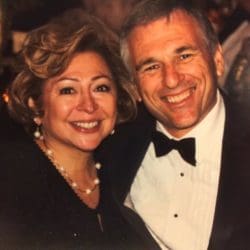I went from being a cheerleader to an advocate.
How has being a military caregiver changed you?
Rosie: Being a military caregiver has empowered me to become a vocal advocate for veterans and for caregivers. I have a powerful voice that I had never even considered using before.
Alain: I don’t believe I’ve had to change as much. I was continually employed and Rosie serves as the primary caregiver to Alan.
What changes did you have to make in your life to adjust to the challenges?
Rosie: When our son, Alan, was first injured, I took a leave from my job at an accounting firm to care for him. Alan lost 90 percent of his stomach, suffered a stroke, and was semi-comatose for two and a half years. After the stroke, I quit my job because I understood my priorities and realized I couldn’t do everything at once.
Alain: Our entire lives changed at the time in our lives when we were able to do almost anything spur-of-the-moment. We now think of how what we want to do will impact Alan, and as we get closer to retirement, we view it as the three of us. We don’t let his combat wounds prevent us from trying new things with him but we are always cognizant of the equipment and special needs items we need to have to ensure his continued good health and dignity.
What do you think is a misconception that civilians have about your life?
Rosie: No one has any idea about the tremendous amount of hard work it takes to keep my son upbeat and positive. Being a caregiver is exhausting, mentally and physically. At the same time, my family is a success story, we are a joyful and happy family. We’ve made ourselves a great life.
Alain: I think civilians in general don’t realize the extent of family involvement in the care of our wounded and the limitations placed on the direct support provided by the military or by the VA.

My Story
Rosie and Alain care for their son, Alan. Alan was among the first critically wounded in Iraq in 2003. It took over a month to have him transferred to Walter Reed National Military Medical Center, and once there he suffered a stroke and meningitis before going into a two-and-a-half-year coma.
As Dole Fellows, they work to develop strong relationships and friendships, as well as to create a community from which caregivers can draw strength.









